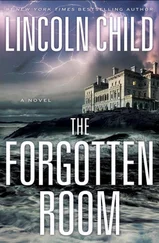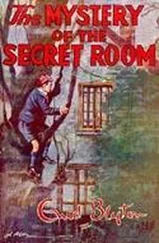He and Alex woke up with hangovers.
With Alex, at least, Gordon could express something of what it was like at Stanville. He had been describing his students, giving Alex the impression that Romy Hall was just one more student he helped, or tried to help, equal with the others, which made him inwardly aware that it wasn’t the case.
Alex started questioning him about his involvement with prisoners. Alex talked about Norman Mailer and Jack Henry Abbott. Alex said he wondered whether Mailer was responsible for what happened after he got Jack Henry Abbott, his little pet project, out of prison.
He wasn’t a pet project, Gordon said.
“Yeah yeah,” Alex said. “He wasn’t. He was a person. But did Norman Mailer understand that?”
———
His first day back at work, the warden put the prison on lockdown because of fog. It wasn’t even real fog. It was haze from crop dusters that sprayed the almond fields surrounding the prison. Lockdown meant everyone confined to their cells. No work exchange, no classes, no movement. He would be paid to do nothing like everyone at the facility, but he felt a sense of regret. He would not see her, would not tell her he’d gone to her Vietnamese place on Sixth Street.
He went home and let impulse drive his actions. Called the number she had given him. Jackson Hall was the name of the kid, written on a pink piece of paper. I am just inquiring. She doesn’t even have to know I made this call. The person who answered told him to dial another number. At the new number he was put on hold for a very long time, and then passed to someone’s voice mail. After several days, someone called him back and left a message. Gordon was at work. He called the number the next morning, reached a voice mail and left another message. This went on for weeks, because Gordon wasn’t home much, since he worked down in the valley and lived up on the mountain.
What he eventually learned, when he spoke with a human being at San Francisco’s Family and Children Services, was exactly proof of why he should not have gotten involved.
A few years ago some fuckers built a vacation house just across Stemple Pass Road. Motorcycle and snowmobile fiends. They would buzz up and down the road past my cabin most weekends, summer and winter. Last summer they were worse than usual, sometimes made it a three-day-weekend. It was getting absolutely intolerable. My heart was going bad. Any emotional stress, anger above all, makes it beat irregularly. It got so that the constant cycle noise was choking me with anger, heart going wild. Risky to commit crimes so close to home, but I figured if I didn’t get these guys the anger would literally kill me. So one night in fall I sneaked over there, though they were home, and stole their chainsaw. Buried it in the swamp.
Couple of weeks later I chopped my way into their house, smashed up interior pretty thoroughly. It was a real luxury place. They also had a mobile home there. I broke into that, too. Found a silver-painted motorcycle inside. Smashed it up with my axe. They had four snowmobiles sitting outside. I thoroughly smashed engines of these.
A week or so later cops came up here and asked had I seen anyone fooling around any buildings. Also asked if I had any problems with motorcycles. The truth crossed their minds. But probably they didn’t seriously suspect me. Otherwise their questions would not have been so perfunctory.
I’m pleased I was so collected in answering cops’ questions.
This is how a guy never, ever wants to wake up: handcuffed, and in a hospital bed. But that was how Doc found himself. Cuffed to the bed. A doctor walked in. Not a prison medical technician’s assistant, but a real doctor. He was even wearing a white coat. The doctor leaned over him.
“You’re awake,” he said. “Can you hear me okay?”
Doc nodded.
“Do you know how you got here?”
Doc shook his head. He had no goddamned idea.
“Okay, that’s okay. Let’s start with basics. Do you know what year it is?”
“It’s—”
Doc did not know what year it was. But it dawned on him that he knew how to answer this stupid question.
“It’s the year after last year.”
The doctor frowned. “Do you know where you are?”
Doc looked around. Saw nothing but a metal cart with pills in paper cups. An armed guard sitting on a chair. The room had no windows, and there was nothing on the walls. He looked down at his body. Saw a garment that was half a garment. His hand was plastered with tape holding a needle in. Tubes ran from his hand up to a metal stand with a bag hanging from it, half full of clear liquid. A person who must have been a nurse came in and eyed the bag. Squeezed it in a way that seemed reckless, and walked out of the room. Doc’s cuffed wrists were chained to the bed’s metal rails. His ankles, too, were manacled to the bedrails. He had no clue where he was. All he knew was that his skull felt like it had been split in half by a concrete spillway. Icy water splashed through the spillway, pushing his brains apart.
“Any sense of where you are?” the doctor asked again.
“Yes. I am directly above the center of the earth.”
Hey, at least it was an answer.
The doctor smirked. “All right, funny guy. And can you tell me your name?”
“I can,” Doc said. “I know my name. I know it!”
“Congratu-fuckin-lations,” the guard called out from his chair.
“It’s Richard L. Richards. See this?” Doc glanced at his own forearm, where he had a big dollar sign tattooed and underneath it, FUCK YOU I’M RICH. It was a joke. He was Rich, Rich Richards, even if people called him Doc. He’d discovered it on the wall of a tattoo parlor in Hollywood, among the designs customers could choose. Doc didn’t have amnesia. He knew who he was. Fuck you, I’m Rich. He just got his bell rung somehow and could not remember the some or how.
He had a shackle around his waist. A stun shackle, actually. If he tried to pull away, it would zap him good and fierce.
“What did I do?” he asked the doctor. “Did I kill somebody?”
The armed guard at the door laughed long and loud. “Did I kill somebody,” he imitated in a mock-high voice.
“You sustained a traumatic brain injury,” the doctor explained. “You almost died. You’ve been in an induced coma for eight weeks now, while we waited for the swelling to go down.”
“Has this asshole been sitting there guarding me the whole time?”
“Time and a half, actually,” the asshole said.
The doctor explained to Doc that he was in a hospital in Lodi.
“Fuck, I hate Lodi.”
But had he ever been to Lodi? He wasn’t sure.
———
Traumatic brain injury, they kept repeating at him. The doctor gave him a pamphlet, “Educating Your Loved Ones About Your TBI.” It was what they gave out at that hospital, which did not treat convicts unless it was forced to. Doc didn’t have any loved ones, but he read it anyway. He would be sleeping a lot, his imaginary loved ones were meant to understand. He might seem to have undergone a personality transformation, and present now as more mild, or more angry, less or more prone to violent outburst, gifted in a savant-like way, or blunted and dulled in intelligence and executive functioning. Loved ones, for those who had them, should be patient about these changes, and about the recovering person’s confusions and sensitivities, his vertigo, his atypical ideas and erratic moods.
Doc did have a lot of strange thoughts over the days he lay in that bed, waiting for the nurse to come in and squeeze and change the IV bag. Mostly they were thoughts about country music stars, who roamed his mind like ponies on a circle track. These stars, men and women both, were fancy, dressed to perform for thousands onstage and many thousands more in television land. They were folks who seemed like old friends of the family, but he didn’t know what family, or whose. There was a reunion feeling crowding into his mind, many people gathering on the stage for an all-star number. Dolly Parton with her dimples. Roy Acuff. Ray Pillow. Ray Price the Cherokee Cowboy. Skeeter Davis. Ferlin Husky. Everyone in on “Wildwood Flower.”
Читать дальше








![О Генри - Меблированная комната [The Furnished Room]](/books/415396/o-genri-meblirovannaya-komnata-the-furnished-room-thumb.webp)
![О Генри - Комната на чердаке [The Skylight Room]](/books/415780/o-genri-komnata-na-cherdake-the-skylight-room-thumb.webp)


